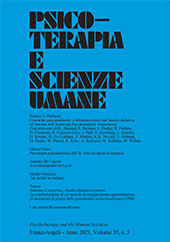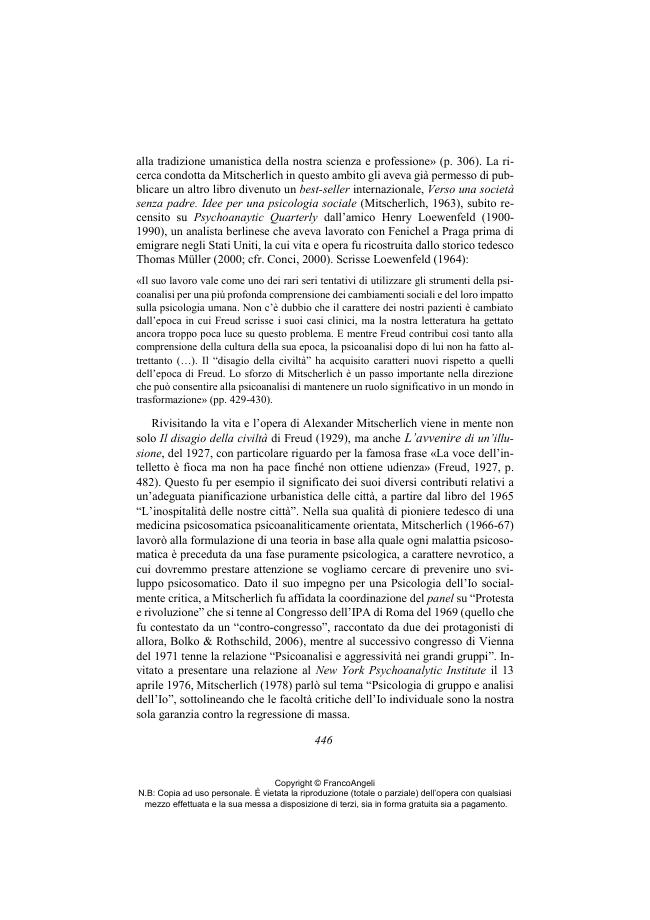Psicologia psicoanalitica dell'Io : una prospettiva europea
425-466 p.
Il modo migliore di riscostruire la storia della psicoanalisi non è quello di cominciare dalle teorie ma dagli autori e dai loro contesti. Importanti contributi allo studio dell'Io furono dati in Europa già da Ferenczi e Fenichel, ben prima che Hartmann fondasse la Psicologia dell'Io che egemonizzò il campo negli Stati Uniti. Nell'Europa dell'anteguerra importanti contributi a quella che qui viene chiamata "psicologia psicoanalitica dell'Io" vennero da Anna Freud, Paul Federn e Gustav Bally, e nel dopoguerra da Alexander Mitscherlich, Paul Parin e Johannes Cremerius per la comunità di lingua tedesca e da Joseph Sandler per quella di lingua inglese. Su questa base si potrebbe parlare di "psicologie dell'Io" al plurale, come si fa per le diverse teorie delle relazioni oggettuali. La psicologia psicoanalitica dell'Io di Fenichel attraverso i princìpi tecnici da lui enunciati negli anni 1930 informa tuttora di sé il lavoro di tanti psicoanalisti anche se in modo inconsapevole, soprattutto in Germania.
Rappresenta ad esempio l'ingrediente di fondo della "terapia psicoanalitica", empiricamente verificabile, formalizzata da Helmut Thomä e Horst Kächele. [Testo dell'editore].
The best way to reconstruct the history of psychoanalytic ideas is to begin not from the study of theories but of the various authors and their contexts. Important contributions to the study of the ego came in Europe already from Ferenczi and Fenichel, well before than Hartmann founded ego psychology that became mainstream in North America. In Europe, before World War Two, significant contributions to what here is called "psychoanalytic ego psychology" (contrasted to Hartmann's "Ego Psyhcology") came from Anna Freud, Paul Federn and Gustav Bally, and after World War Two from Alexander Mitscherlich, Paul Parin and Johannes Cremerius in the German speaking community, and from Joseph Sandler in England. We should talk of "ego psychologies", then, in the same way as we talk of the various object relations theories.
Psychoanalytic ego psychology as it was described in the guiding principles Fenichel wrote about in the 1930s still informs the clinical work of many psychoanalysts even if they are not fully aware of it, especially in Germany. For example, it represents the basic ingredient of the empirically verifiable "psychoanalytic therapy" detailed by Helmut Thomä and Horst Kächele. [Publisher's text].
Forma parte de
Psicoterapia e scienze umane : LV, 3, 2021-
Artículos del mismo número (disponibles individualmente)
-
Información
Código DOI: 10.3280/PU2021-003002
ISSN: 1972-5043
MATERIAS
KEYWORDS
- Psicologia dell'Io, Heinz Hartmann, Storia della psicoanalisi, Otto Fenichel, Thomä & Kächele
- Ego psychology, Heinz Hartmann, History of psychoanalysis, Otto Fenichel, Thomä & Kächele



